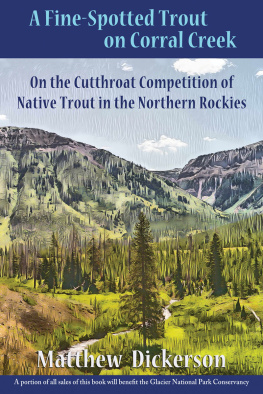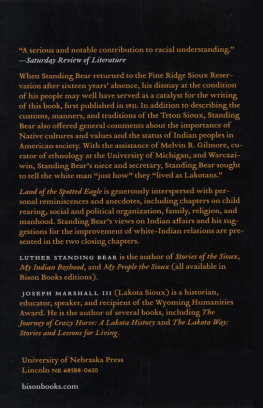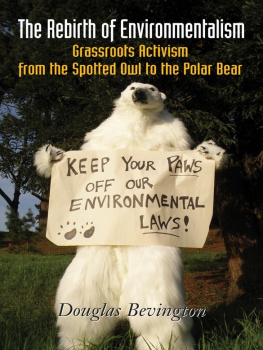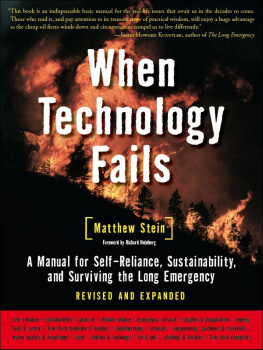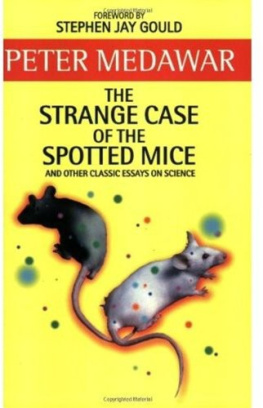Community and the Northwestern Logger
RURAL STUDIES SERIES
of the
Rural Sociological Society
Series Editor
Lionel J. Beaulieu, University of Florida
Editorial Board
Jess C. Gilbert, University of Wisconsin-Madison
Richard S. Krannich, Utah State University
Linda M. Lobao, Ohio State University
Rogelio Saenz, Texas A&M University
DeeAnn Wenk, University of Oklahoma
Deborah M. Tootle, USD A ERS ARED
Rural Studies Series
Community and the Northwestern Logger: Continuities and Changes in the E of the Spotted Owl , Matthew S. Carroll
Investing in People: The Human Capital Needs of Rural America , Lionel J. Beaulieu and David Mulkey
Against All Odds: Rural Community in the Information Age , John C. Allen and Don A. Dillman
Rural Data, People, and Policy: Information Systems for the 21st Century , edited by James A. Christenson, Richard C. Maurer, and Nancy L. Strang
Economic Adaptation: Alternatives for Nonmetropolitan Areas , edited by David L. Barkley
Persistent Poverty in Rural America , Rural Sociological Society Task Fore on Persistent Rural Poverty
Rural Policies for the 1990s , edited by Cornelia B. Flora and James A. Christenson
Research, Realpolitik, and Development in Korea: The State and the Green Revolution , Larry L. Burmeister
First published 1995 by Westview Press
Published 2018 by Routledge
52 Vanderbilt Avenue, New York, NY 10017
2 Park Square, Milton Park, Abingdon, Oxon OX14 4RN
Routledge is an imprint of the Taylor & Francis Group, an informa business
Copyright 1995 by Taylor & Francis
All rights reserved. No part of this book may be reprinted or reproduced or utilised in any form or by any electronic, mechanical, or other means, now known or hereafter invented, including photocopying and recording, or in any information storage or retrieval system, without permission in writing from the publishers.
Notice
Product or corporate names may be trademarks or registered trademarks, and are used only for identification and explanation without intent to infringe.
Library of Congress Cataloging-in-Publication Data
Carroll, Matthew S. (Matthew Stephen)
Community and the Northwestern logger : continuities and changes
in the era of the spotted owl / by Matthew S. Carroll ; foreword by
Don A. Dillman
p. cm. (Rural Studies Series of the Rural Sociological
Society)
Includes bibliographical references and index.
ISBN 0-8133-8818-X
1. LoggersNorthwest, PacificSocial conditions. 2. Forest
managementEconomic aspectsNorthwest, Pacific. 3. Forest
managementEnvironmental aspectsNorthwest, Pacific.
4. Northwest, PacificRural conditions. I. Title. II. Series.
HD8039.L92U5331995
338.174980979c20
94-42047
CIP
ISBN 13: 978-0-367-01250-2 (hbk)
This book is dedicated to the three most influential people in my life:
--To my father Jim Carroll (1925-1986), consummate outdoorsman, pragmatic philosopher, and natural leader, who taught me to love the outdoors and to admire and respect working people and their store of knowledge and wisdom;
--To my mother, Marge Carroll, font of warmth, stability, and love of life to all who know her, who taught me about understanding people at an intuitive level and to love music and dancing;
--To my spouse and lifemate, Denise Konetchy, animal lover, horsewoman, veterinarian, and organizer of people, who has taught me more about the important things--constancy, commitment and balance--than a lifetime of academic training could ever provide. It is she who constantly reminds me by words, and especially by example, that there is life beyond work and the academy.
Virtually everyone in the United States has heard of the spotted owl. Its image has appeared frequently on the covers of national magazines, and its habits have been the object of multiple expensive scientific investigations. Simultaneously, this tiny creature is seen as mysterious, pretty, delicate, dignified, and threatened with extinction.
Less visible to and less understood by Americans are the lives of those who have frequently been portrayed as the spotted owls enemy--the northwestern loggers.
This book is not about right and wrong, nor which values should prevail in this divisive controversy; neither is it about how the forest industry works. Rather, it is about the social world of loggers and how that world has been affected by the dispute. The book also provides important background for the development of policies essential for finding reasonable and humane accommodations in forestry and natural resource conflicts, of which the spotted owl dilemma happens to be the one with greatest visibility.
The reader is introduced to the lives of working loggers from their perspectives as gyppos, fallers, choker setters, landing chasers, yarders, cat skinners, and other jobs associated with transforming trees into lumber. The authors experiences of working on a logging crew produce engaging descriptions of logging work: for example, how a talkie tooter enables a rigging slinger to control the operation of a yarder. Intriguing as these descriptions of the loggers world are, they are only prologue to the authors purpose.
Community, as a sociological concept, has been used to describe influences on peoples lives that go beyond family, clubs, organizational connections, friendship groups, and work. It influences how people think of themselves and define life possibilities. Traditionally, community has been defined by a named geographic place. Development of the mass society in this century meant that geographic community became less important in most peoples lives and produced sociological debate over whether anything has taken the place of the geographically bounded community as an anchor in peoples lives.
Here, the author shows that indeed loggers are part of a community around which they build strong identities and equally powerful, even fierce, loyalties. However, this occupational community is not geographically centered around a specific town. Rather it exists over a somewhat broader area across which particular loggers typically work. The analysis suggests that the loggers occupational community provides the basis of reference group, pride in work, friendship support in hard times, and ultimately the sense of self.
When hundreds of thousands of farmers were being forced out of agriculture in the early 1980s, the plight of many was made especially difficult because for generations their families had farmed, and it had become a way of life. For them to even conceive of being retrained for other kinds of work was a wrenching experience. Many could not imagine being anything other than a farmer. Recognizing this social fact was an essential prerequisite to successful job training efforts.
Matt Carroll, in this book, contributes to our understanding of the lives of loggers what Bill and Judy Heffeman and other rural sociologists did for farmers and the difficult agricultural transition more than a decade ago. He provides a sociological understanding of their work and community, both of which are essential prerequisites for intelligent adjustment policies. Along the way he contributes to our understanding of how community influences human behavior. He also brings to the community literature an important study from a region of the United States which appears only infrequently in the rural sociological literature.


